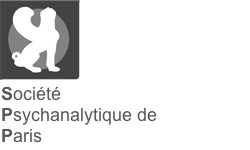|
Résumé :
|
As a psychoanalytic psychotherapist working amongst deprived populations traditionally denied access to psychoanalysis, I can attest to the fact that this work is a lonely business. There is the solitary immersion in eviscerating material, and the social and psychic isolation of my patients, who have been banished to the realm of the ‘para-social’ - those heavily socially and state-policed enclaves of death-in-life nestled within the vanishing points of communities. Then, there is the professional loneliness. Just as wider society performs the conjuring trick of ‘disappearing’ or ‘unseeing’ the forsaken whose lives it would prefer to not have to acknowledge - usually, because of what such acknowledgement might disclose to society about itself - so, in a parallel process, professional psychoanalysis has tended to render unseeable those of us working with the displaced, dispossessed and chronically socially excluded. Like the largely invisible patients we attend to, we are frequently erased by the professional snobbery that has endured since Freud, in his 1918 Budapest address, first distinguished between the ‘copper-alloy’ of psychotherapeutic work with the disadvantaged, and the ‘pure gold’ of psychoanalytic work with the advantaged.
|




